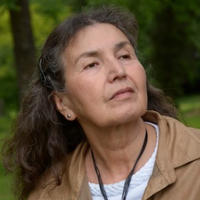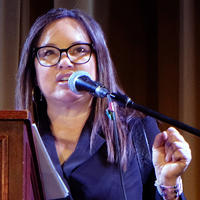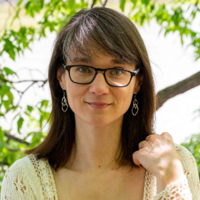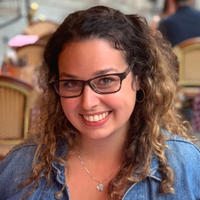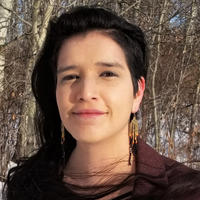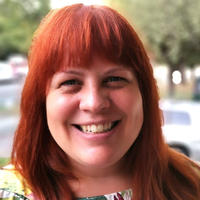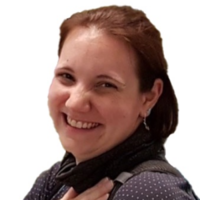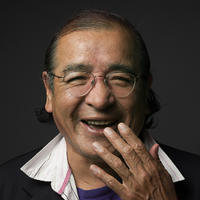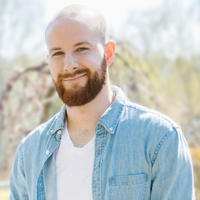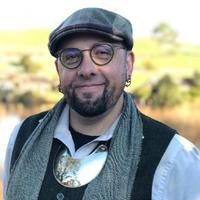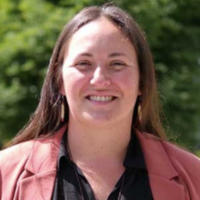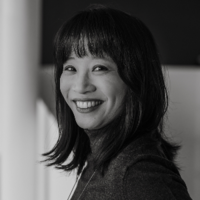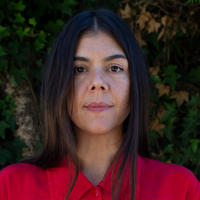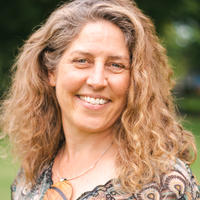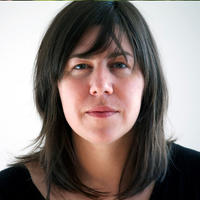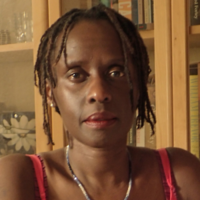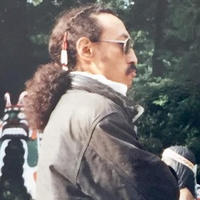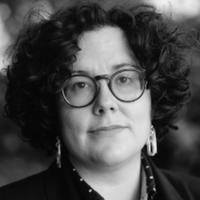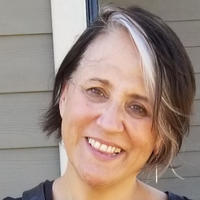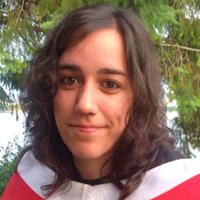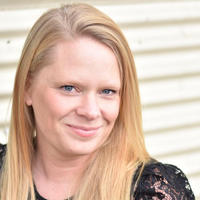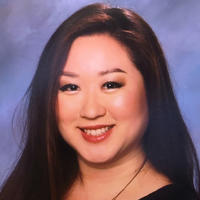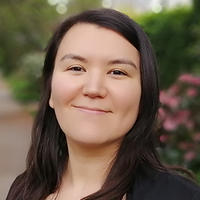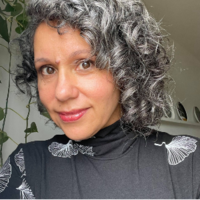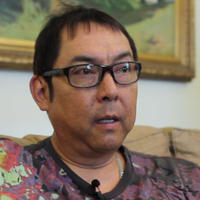Jeannette Armstrong
Okanagan author Jeannette Armstrong was born in 1948 and grew up on the Penticton Indian Reserve, part of the Okanagan Nation’s territories, in British Columbia, Canada. Armstrong, the first published Indigenous woman novelist from Canada, is the grand-niece of Hum-Ishu-Ma (Mourning Dove, a.k.a. Christal Quintasket), the first Native American woman novelist. While growing up, Armstrong received a traditional education from Okanagan Elders and her family. From them, she learned the Okanagan language, and she is still a fluent speaker of the Okanagan (or N’silxchn) language today. In 1989, she helped to found the En’owkin School of International Writing, which is the first creative writing program in Canada that is run by and for Indigenous writers and editors. Her well-known and critically acclaimed works include the novels Slash (1987) and Whispering in Shadows (2000); a collection of poetry, Breath Tracks (1991); and the first collection of essays on Indigenous literature by Indigenous critics, Looking at the Words of Our People: First Nations Analysis of Literature (1993). She is a Professor of Indigenous Studies and a Canada Research Chair in Indigenous Philosophy at the University of British Columbia (Okanagan).
Lisa Bird-Wilson
Lisa Bird-Wilson, a Métis and nêhiyaw writer from Saskatchewan, is the author of three books: The Red Files, a poetry collection (Nightwood Editions, 2016), Just Pretending, short stories (Coteau Books, 2013) and An Institute of Our Own: A History of the Gabriel Dumont Institute (Gabriel Dumont Press, 2011). Just Pretending is the 2019 One Book One Province selection for Saskatchewan. Her shorter works have been published in periodicals and anthologies across Canada. Bird-Wilson lives in Saskatoon, SK.
Melanie Braith
Melanie Braith holds a PhD in Indigenous literatures from the University of Manitoba. She is a settler scholar from Germany who currently lives and works on Treaty 1 territory. Her research focuses on Indigenous oral storytelling (Cree storytelling in particular), residential school literature, and forms of ethical listening. Melanie is the project manager and research coordinator for The Six Seasons of the Asiniskaw Īthiniwak, a community-based project that combines Rocky Cree storytelling, history, and archeology. The project brings together community members and university researchers to produce a series of six children’s books about Rocky Cree language and culture.
David Gaertner
David Gaertner is a settler scholar of German descent on both his mother and his father’s sides of the family. He lives and works on the traditional, ancestral, and unceded territory of the hən̓q̓əmin̓əm̓-speaking Musqueam people where he teaches and researches Indigenous new media in the First Nations and Indigenous Studies Program at the University of British Columbia. He is one of the co-editors of Read, Listen, Tell: Indigenous Stories from Turtle Island (Wilfrid Laurier University Press 2017) and the author of The Theatre of Regret: Troubling Reconciliation in Canada (University of British Columbia Press, 2020).
Alexandra Glinsbockel
Born and raised in Burnaby, British Columbia, I have been schooled in a Western Anglo- European epistemology. With parents who are first generation Canadians and grandparents who immigrated from Central and Eastern Europe following the Second World War, I attended Catholic elementary and secondary school, and completed a Bachelor of Arts in Theology and Culture (2017) at a Catholic post-secondary institution before widening my worldview with a Bachelor of Education (2018) at the University of British Columbia and a Master of Arts (2020) at Simon Fraser University. As a result of the trajectory of my early education, my lens is tinged with a polaristic Catholic worldview predicated on community and faith. My latter education, however, has developed upon the basis of intended objectivity and holistic analysis, with a specific focus on Indigenous Literature. I am an English and Career Life Connections teacher at a private Catholic secondary school in East Vancouver, and in 2019, I was contracted by Simon Fraser University to design curriculum for other secondary teachers in the area of Indigenous Literature, with an emphasis on Critical Thinking. Through these experiences, my goal has become to find balance between two distinct worldviews.
Mackenzie Ground
Mackenzie Ground (she/her/hers) is a nehiyawiskwew and a writer from Enoch Cree Nation and Edmonton, Alberta, Treaty Six. She is a PhD student at Simon Fraser University and a member of the Writing Revolution in Place research collective. Her writing has appeared in The Glass Buffalo, G U E S T, The Capilano Review, and The Fiddlehead.
Tamara Hansen
Tamara Hansen is a high school teacher, educator, and social justice activist. She has a B.A. in French and Indigenous Studies, a B.Ed. in Environmental Education, and an M.A. in English. While working on curriculum for Read, Listen, Tell: Indigenous Stories from Turtle Island, Tamara often wondered how to respectfully challenge colleagues, students, and the wider community to step out of their comfort zone and engage with these stories. She also considered how to prepare non-Indigenous teachers to teach Indigenous literatures respectfully and consciously. Tamara passionately believes in talking about social justice and other challenging and controversial issues in the classroom. Opening these conversations in schools is part of her responsibility as someone living in Burnaby on the unceded traditional territories of the səl̓ilw̓ətaʔɬ (Tsleil-Waututh), kʷikʷəƛ̓əm (Kwikwetlem), Sḵwx̱wú7mesh Úxwumixw (Squamish) and xʷməθkʷəy̓əm (Musqueam) Nations.
Cécile Heim
Cécile Heim (she/her) is a Swiss-French Doctoral Assistant at the University of Lausanne in Switzerland. She was introduced to Indigenous people of Turtle Island and their literatures whilst on exchange at the University of British Columbia on Musqueam land during which she volunteered at Vancouver’s Downtown Eastside Women’s Center. Ever since, Cécile dedicates her research and teaching trying to be as good an ally to Indigenous people and decolonial scholars as she can. While her dissertation analyzes the literary representations of violence against Indigenous women and girls, her teaching focuses on Indigenous literatures, critical ethnic, and decolonial studies. Cécile is currently launching the DICE (Decolonial, Indigenous, and Critical Ethnic studies) Network with Prof. Aleksandra Izgarjan in the hope of creating a multi-institutional platform which not only facilitates deliberations and exchanges in these and related fields, but also aims to find ways to become better kin to Black, Indigenous, and People of Color.
Tomson Highway
Tomson Highway was born into a Cree-speaking family in northwestern Manitoba in 1951. As a Status Indian—Highway is a member of Barren Lands First Nation near Brochet, Manitoba—he and his siblings were separated from their family and educated in residential schools in the southern half of the province, the experience of which inspired the storyline of his first novel, Kiss of the Fur Queen, published in 1998. Like Jeremiah, the elder of two brothers in the story, Highway studied classical piano at school and eventually became a playwright and director in the Toronto theatre scene. He won the Dora Mavor Moore Award for Best New Play in 1987 for The Rez Sisters and again in 1989 for Dry Lips Oughta Move to Kapuskasing. Highway has also received numerous other accolades over the years, including the Order of Canada in 1994 and the National Aboriginal Achievement Award in 2001.
Jaron Judkins
Jaron Judkins is a settler scholar and phD candidate at Simon Fraser University. His research focuses on Indigenous literatures and Mormon settlement.
Daniel Heath Justice
Daniel Heath Justice is a Colorado-born Canadian citizen of the Cherokee Nation and Canada Research Chair in Indigenous Literature and Expressive Culture at the University of British Columbia, on the traditional, ancestral, and unceded territories of the Musqueam people. He is an avowed fan of J. R. R. Tolkien and his Indigenous epic fantasy novel, The Way of Thorn and Thunder: The Kynship Chronicles, is an intertext with Tolkien’s Lord of the Rings (2011). He is also the author and editor of a diverse selection of academic books and articles, including Our Fire Survives the Storm: A Cherokee Literary History (2006), the Oxford Handbook of Indigenous American Literature (2014), Why Indigenous Literatures Matter (2018), Badger (2015), and Racoon (2020). His co-edited work include, with James H. Cox, The Oxford Handbook of Indigenous American Literature (2015) and Raccoon (Reaktion Books, 2021), and, with Jean M. O’Brien (White Earth Ojibwe), Allotment Stories: Indigenous Land Relations under Settler Siege (2021).
Natalie Knight (interviewer: Jeannette Armstrong)
Natalie Knight (Diné and Yurok) is a visitor on unceded Musqueam, Squamish, and Tsleil-Waututh territories.
Joanne Leow
Joanne Leow lives as a guest on Treaty Six Territory and the homeland of the Métis. She is Assistant Professor of decolonizing, diasporic, and transnational literatures at the University of Saskatchewan. Her most recent research on Asian/Asian diasporic studies, environmental humanities, postcolonial ecocriticism, and Black Canadian literature is in positions: asia critique, Verge: Studies in Global Asias, University of Toronto Quarterly, and Journal of Asian American Studies. Her book manuscript theorizes the relationship between cultural dissidence and urban planning in Singapore. Her ecocritical SSHRC-funded project “Intertidal Polyphonies” documents the changing coastlines of Singapore, Hong Kong, and Vancouver and is archived at intertidal.usask.ca.
Gabrielle L’Hirondelle Hill
Gabrielle L’Hirondelle Hill is an artist and writer descended from Cree, Métis, and English lineages. Born in K’ómoks territory, Gabrielle moved with her family in the mid-1980s to unceded Musqueam land so that her mother could attend the Native Indian Teacher Education Program at UBC. Gabrielle and her siblings had the privilege of being raised on Indigenous literature. From learning through her mother’s school books as a child—by authors including Chrystos, Emma LaRocque, and Gloria Anzaldúa—to passing around the novels by Sherman Alexie, Louise Erdrich, and Thomas King she and her brothers got for Christmas, Gabrielle formed a sense of who she was in a large part through that literature. To this day, Gabrielle believes in the transformative potential of stories that help readers see themselves as powerful, as part of an intellectual and artistic community, and that communicate and develop ideas about who we are and how we came to be here in the contexts of colonialism, capitalism, and resistance.
Lee Maracle
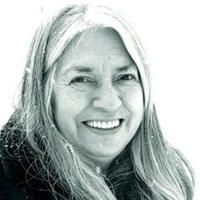
Lee Maracle (1950-2021) was a celebrated writer, poet, educator, storyteller, and performing artist. Among her best-known works, which span the genres of fiction, poetry, life narratives, short stories, and critical theory, are Bobbi Lee: Indian Rebel (1975, republished 1990), Sojourner’s Truth and Other Stories (1990), Oratory: Coming to Theory (1990), Ravensong (1993), I Am Woman: A Native Perspective on Sociology and Feminism (1996), Celia’s Song (2014), and My Conversations with Canadians (2017). She was a member of the Stó:lō Nation. Maracle held numerous distinguished academic posts, including the Stanley Knowles Visiting Professor in Canadian Studies at the University of Waterloo, the Distinguished Professor of Canadian Culture at Western Washington University, Writer in Residence at the University of Guelph, and instructor at the University of Toronto.
Sophie McCall
Sophie McCall is a settler scholar and Professor in the English department at Simon Fraser University. She has published widely on topics such as textualizing oral history, the struggle for Indigenous rights, decolonization, resurgence, and reconciliation. She is the author of First Person Plural: Aboriginal Storytelling and the Ethics of Collaborative Authorship (UBC P, 2011); co-editor, with Deanna Reder (Cree-Métis), David Gaertner, and Gabrielle L’Hirondelle Hill (Métis), of Read, Listen, Tell: Indigenous Stories from Turtle Island (Wilfrid Laurier UP, 2017); with Gabrielle L’Hirondelle Hill of The Land We Are: Artists and Writers Unsettle the Politics of Reconciliation (ARP Books, 2015); with Christine Kim and Melina Baum Singer of Cultural Grammars of Nation, Diaspora, and Indigeneity in Canada (WLUP, 2012); and editor of Anahareo’s Devil in Deerskins (U Manitoba P, 2014), the first book-length life narrative published by an Indigenous woman author in Canada.
Ashley Caranto Morford
Ashley Caranto Morford (she/her) is a diasporic Filipina-British settler and scholar-organizer whose work is accountable to and in relationship with Indigenous studies, Filipinx/a/o studies, critical race studies, anti-colonial methods and practices, and digital humanities. She is an Assistant Professor in the Department of Liberal Arts at the Pennsylvania Academy of the Fine Arts in Lenapehoking, the Lenni-Lenape territory colonially called Philadelphia. Ashley’s current research asks how literature by BIPOC (Black, Indigenous, and people of colour) writers can help settler Filipinx/a/os understand how to be better and more accountable kin and relations to Black and Indigenous communities in colonially called North America.
Nadia Myre
Nadia Myre is a multidisciplinary artist of Algonquin ancestry. As exemplified by works Indian Act (2002) and The Scar Project (2005-2013), her work explores the politics of belonging by positioning it within a framework of Indigenous resistance and resilience. Myre has an extensive exhibition history, with over 115 shows—25 of which have been solos—just in the last 10 years. Her work can be found in the Canadian Embassies of New York, London, Paris and Greece. Most recent exhibitions include Volume 0 (Zuecca Project, Venice), Balancing Acts (Textile Museum, Toronto, 2019), Show Me Your Wound (Dom Wein, Vienna, 2018/19), Code Switching and Other Work (The Briggait, Glasgow International, 2018), Tout ce qui reste/Scattered Remains (Montreal Museum of Fine Arts, 2017/18). Myre is the recipient of many commissions and awards, notably the 2014 Sobey Art Award for Canadian artists under 40, and in 2019 was inducted into the Order of Arts and Letters of Quebec.
Otoniya Juliane Okot Bitek
Otoniya Juliane Okot Bitek is a poet and scholar. Her 100 Days, a collection of poetry on how to remember the 1994 Rwanda Genocide, won the 2017 Glenna Luschei Prize for African Poetry and the INDIEFAB Book of the Year (Poetry) Award. It was also nominated for several writing prizes. Juliane’s most recent academic articles and contributions include: “What Choices Between Nightmares: Intersecting Local, Global and Intimate Stories of Pain in Peacebuilding”. Peace Building and the Arts (Palgrave/MacMillan 2020) and “Conversations at the Crossroads: Indigenous and Black Writers Talk”, Ariel: A Review of International English Literature (2020) and “Colonial Intent as Treachery: A Poetic Response” (Critical African Studies 2021). She is an Assistant Professor at Queen’s University on the lands of the Anishnaabe and the Haudenosaunee people in what we now call Kingston, in Ontario.
Solomon Ratt
Solomon Ratt is a first-language speaker of the th-dialect from Stanley Mission, Saskatchewan. He teaches in both th- and y-dialects at First Nations University of Canada. He is the author of, among other texts, Woods Cree Stories (2014).
Madeleine Reddon
Madeleine Reddon is a Métis scholar and PhD candidate in the Department of English at the University of British Columbia (UBC). Her dissertation, titled “Indigenous and Other Modernisms: Negotiating Inheritance in the Colonial Archive,” considers the centrality of Indigenous experimental praxis within modernism by examining the aesthetic affiliations between Indigenous writers, African-American writers, and the surrealist avant-garde. She has recently published an article in Canada and Beyond: A Journal of Canadian Literary and Cultural Studies: “Indigenous Modernism: Dehabituating Reading Practices.”
Deanna Reder
Deanna Reder (Cree-Métis) is an Associate Professor of Indigenous Studies and English at Simon Fraser University. Her research focuses on the understudied archive of Indigenous literary work in Canada up to 1992 (see thepeopleandthetext.ca). She is the author of Autobiography as Indigenous Intellectual Tradition: Cree and Métis âcimisowina (WLUP 2022). She has co-edited several anthologies in Indigenous Literary Studies and helped found the Indigenous Editors Association in 2020. Currently she is co-chair, with SFU’s Dr. Sophie McCall, of the Indigenous Voices Awards (see indigenousvoicesawards.org). In 2018 she was inducted into the College of New Scholars, Artists and Scientists as part of the Royal Society of Canada.
Mélissa Richard
Mélissa Richard is Colombian/French-Canadian, raised across both Canada and the U.S. She has a BA in First Nations Studies from Vancouver Island University and an MA in English from Simon Fraser University. She works primarily as a freelance writer and editor.
Robyn Roukema
To Robyn, life is a series of stories: from the stories read to her as a young child and the historical fiction she devoured as a teenager, to the writing, reading, and acting she did in undergrad where she dedicated herself to the communication of slices of life through story on the page and stage, to the intriguing and relevant stories she now shares every day with her students. She is a Canadian teacher and learner with Dutch ancestry. She is a writer, actor, feminist, liberal, comic, explorer, and basketball coach. She is a daughter, sister, aunt, cousin, and friend.
Jessica Shin
I am an immigrant scholar and educator based in Vancouver, British Columbia on the unceded traditional territories of the xʷməθkʷəy̓əm (Musqueam), Sḵwx̱wú7mesh (Squamish), and sə̓lílwətaʔɬ (Tsleil-Waututh) Nations. I am also a longtime student at Simon Fraser University, where I completed my B.A. in 2008, my B.Ed. in 2012, and my M.A. in 2020. I was born in Seoul, South Korea in 1985. In 1990, my family and I immigrated to Canada. Without a fluent English-speaking parent, I turned to books to inform my understanding of my new English-speaking world and to negotiate where I fit into the schema of the Canadian social landscape. Unfortunately, I seldom found representations of my Korean-Canadian identity amongst the books borrowed from the public library. Growing up, I enjoyed literature written by settler authors, especially The Little House on the Prairies and Anne of Green Gables novel series. For most of my life, the only Canadian writers I read were Lucy Maude Montgomery and Margaret Atwood and other canonical authors pushed onto me by the public education system. Realising as an adult that there has always been great literature authored by minority and Indigenous and writers has been revolutionary and affirming for me. I endeavour to share my discoveries with my high school students and hope that they will leave my class with an understanding that there is always more than one version of any given story.
Naomi Stewart
Naomi Stewart is a Secondary English, French and Humanities teacher at Abbotsford Christian School. She has a passion for making curriculum relevant and relatable to highschool students as they navigate 21st century learning, while appreciating tradition, history and identity. Naomi received her BA (Honours) from the University of Cambridge in Education and English literature in 2015. She then qualified in 2016 with her BC Teaching Certificate from the University of Victoria in the Post-Degree Professional Program, and in 2020 graduated with a Master of Arts for Teachers of English from Simon Fraser University. She recently self-published a short collection of poems entitled Sparks Fly Upward. She hopes to pursue a PhD in literature in the future.
Rachel Taylor
Rachel Taylor is Iñupiaq on her mother’s side and settler on her father's. She is a copy editor and proofreader with twenty years of experience. While she most often works on books of short fiction, autobiography, and scholarly nonfiction, she loves working with a variety of storytellers, genres, and formats. In 2019 Rachel completed the Master of Publishing program at Simon Fraser University. During her studies she enjoyed a work placement with Theytus Books, the oldest Indigenous publishing house in Canada. Her graduate thesis, “Gathering Knowledges to Inform Best Practices in Indigenous Publishing,” was based on this work and on original interviews with publishing professionals and Indigenous community members, including her family. A version of the paper was subsequently published in ARIEL: A Review of International English Literature. She currently lives in Moh’kins’tsis (Calgary) in the beautiful territories of the Peoples of the Treaty 7 region and the home of the Métis Nation of Alberta.
Karina Vernon
Karina Vernon is a Black scholar who works on Anishanaabe, Haudenosaunee, Wendat and Mississauga territory at the University of Toronto. She researches and teaches in the areas of Canadian and Black Canadian literature, Black aesthetics, archives, critical pedagogy, and Black-Indigenous solidarities. She is editor of The Black Prairie Archives: An Anthology, published by Wilfrid Laurier University Press in 2020 and a companion volume, Critical Readings in the Black Prairie Archives, which is forthcoming. With Winfried Siemerling (UWaterloo) she is working on a book project on the politics and aesthetics of relation of Black Canadian cultural achievement, including writing, music, film, and visual art.
Jarrett Viczko
Jarrett Viczko is a transplant from the prairies, having completed his undergraduate degree at the University of Lethbridge on the territories of the Blackfoot Confederacy. He worked for several years in recruitment while pursuing sketch and improvisational comedy and poetry as hobbies before eventually moving to Vancouver in the unceded territories of the Musqueam, Squamish and Tsleil-Waututh Nations. He completed his Master of Arts in English Literature at Simon Fraser University and currently splits his time between working in the film industry and scholarship on fantasy, communal storytelling and performance.
Greg Younging
Gregory Younging (1961-2019), Opaskwayak Cree Nation, was the publisher of Theytus Books, the first Indigenous-owned publishing house in Canada. Gregory also taught in the Indigenous Studies Program of the University of British Columbia, Okanagan, and he served as assistant director of research to the Truth and Reconciliation Commission of Canada. In 2018, the Association of Book Publishers of British Columbia recognized his advocacy for Indigenous editorial agency in Canadian publishing by conferring its annual Gray Campbell Distinguished Service Award. He is the author of the landmark guide on Indigenous editing practices, Elements of Indigenous Style (Brushwood 2019), which began as the house style Gregory developed at Theytus. He also published a book of poetry, The Random Flow of Blood and Flowers (1996), and he edited three volumes of Gatherings, recognized at the time as the only journal of literary writing by Indigenous people in North America. He was administrator and editor of the En’owkin Centre in Penticton, and he was affiliated with Indigenous Peoples Caucus, Creator’s Rights Alliance (Chair), International Indigenous Forum on Biodiversity, Informal Indigenous Caucus, World Intellectual Property Organization, Department of Canadian Heritage Advisory Committee on the National Gatherings on Indigenous Knowledge, Canada Council Aboriginal Peoples Committee on the Arts, and the Royal Commission on Aboriginal Peoples.

